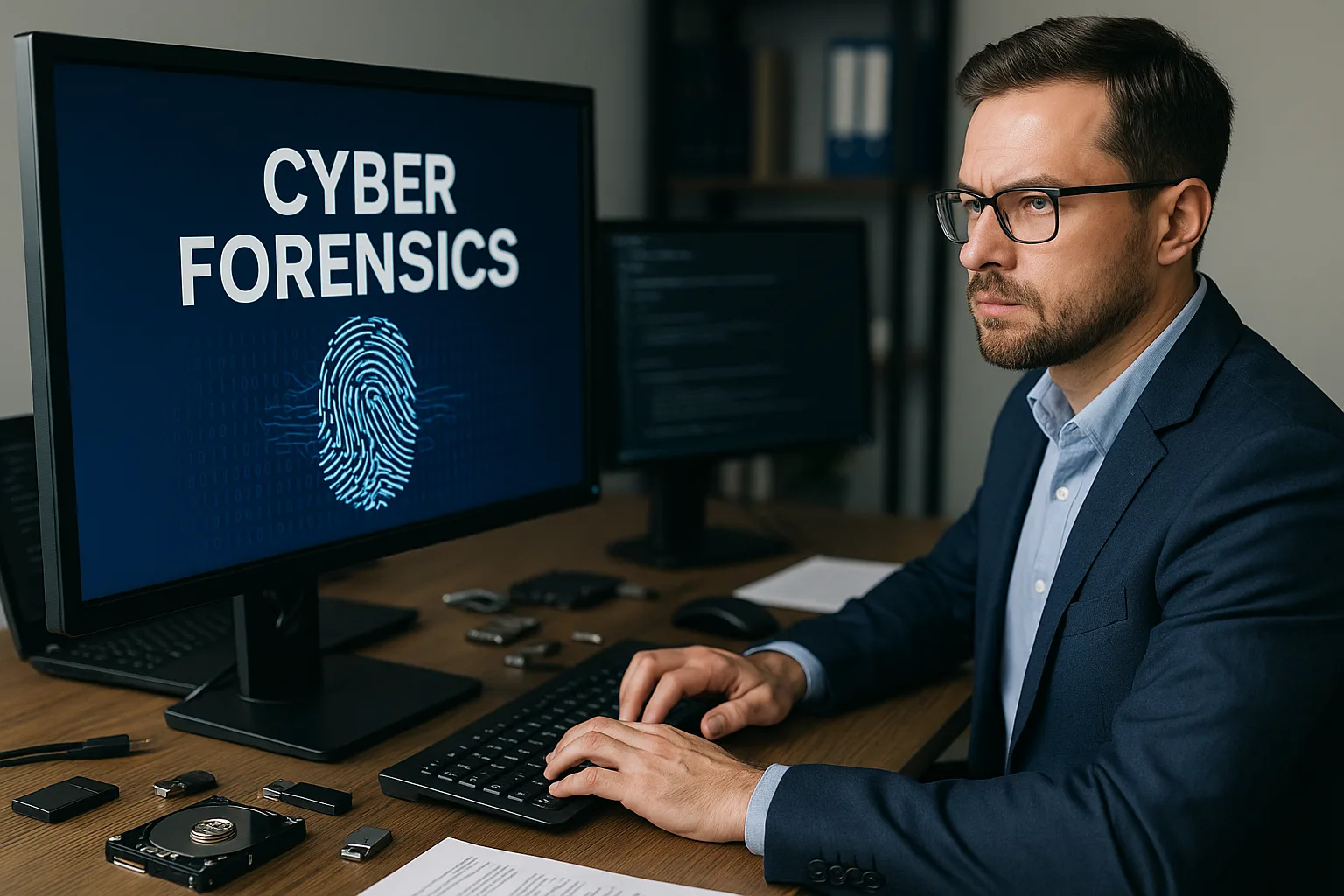The Need For Cyber Forensic Services in the Modern Digital Age
 In an era where data is the new currency, cyber forensic services have emerged as a cornerstone of modern legal, investigative, and corporate processes. These services involve the meticulous recovery, analysis, and preservation of digital evidence, which can prove pivotal in both civil and criminal cases. From unravelling financial fraud to tracing cyber intrusions, cyber forensics empowers professionals to act with confidence in the digital domain.
In an era where data is the new currency, cyber forensic services have emerged as a cornerstone of modern legal, investigative, and corporate processes. These services involve the meticulous recovery, analysis, and preservation of digital evidence, which can prove pivotal in both civil and criminal cases. From unravelling financial fraud to tracing cyber intrusions, cyber forensics empowers professionals to act with confidence in the digital domain.
The increasing digitalisation of business operations, communications, and transactions means that evidence often resides in digital footprints—emails, metadata, deleted files, and even encrypted messages. Whether you’re a solicitor seeking to substantiate a claim, an investigator following a digital trail, or a company director managing internal compliance, cyber forensics provides the tools and techniques to support your goals.
The Legal Relevance of Cyber Forensics in the UK
Role in Criminal and Civil Litigation
The UK legal system places high importance on digital evidence. Cyber forensic services help ensure that electronic data is preserved, analysed, and presented in a way that is compliant with UK court procedures. For criminal barristers and defence lawyers alike, digital evidence such as emails, social media logs, or CCTV metadata can substantiate key elements of a case.
Data Protection and Digital Evidence
Under the UK General Data Protection Regulation (UK GDPR), handling digital evidence must respect individuals’ rights to privacy. Cyber forensics professionals in Computer Forensics Lab, are trained to adhere to these standards while still uncovering essential information. The dual responsibility of upholding data rights while producing admissible evidence is central to the value of these services.
Key Components of Cyber Forensic Investigations
Computer Forensics
Focuses on desktops, laptops, and servers. Investigators retrieve and examine file systems, logs, browsing histories, and deleted data.
Mobile Device Forensics
Involves recovering data from smartphones and tablets, including messages, location data, and app usage.
Network Forensics
Examines digital communication patterns and logs to trace intrusions or data breaches.
Cloud Forensics
Addresses platforms like Google Drive, Microsoft 365, and AWS, retrieving data and logs stored remotely. Each component offers unique insights, and in many cases, a combination is required to build a full digital narrative.
How Cyber Forensic Services Support Legal Professionals
Evidence Collection for Court
Cyber forensic experts in Computer Forensics Lab are trained to extract digital evidence without compromising its integrity. This includes timestamping, documenting the extraction process, and verifying authenticity—essential steps to ensure data is legally admissible in UK courts.
Chain of Custody & Admissibility
Maintaining a transparent chain of custody ensures that the digital evidence remains tamper-proof. Each step of the handling process is logged, which is critical for meeting standards of admissibility under UK criminal and civil procedure rules.
Expert Witness Testimony
Cyber forensic professionals often serve as expert witnesses, explaining complex digital processes in plain terms. Their testimony can make or break a case, especially in high-stakes litigation involving fraud, cyberstalking, or data breaches.
Role of Cyber Forensics for Investigators
Uncovering Fraud & IP Theft
For private investigators and regulatory bodies, cyber forensic services are vital in exposing white-collar crime. This includes detecting false invoices, tracking unauthorised data access, or unearthing the misuse of intellectual property.
Tracing Digital Footprints
Whether it’s tracing an email source or recovering deleted chats from encrypted apps (such as WhatsApp, Signal or Telegram), cyber forensics provides the digital breadcrumbs that lead to the truth. Investigators often rely on these capabilities for background checks, fraud verification, and surveillance support.
Business Applications for Company Directors
Internal Investigations
Directors can use cyber forensics to discreetly investigate employee misconduct, financial anomalies, or policy violations. This ensures transparency without disrupting daily operations.
Cybersecurity Policy Enforcement
Forensic reviews help assess whether internal cybersecurity policies are being followed. Logs and activity reports can reveal breaches, negligence, or deliberate sabotage.
Incident Response Readiness
In the event of a data breach or ransomware attack, cyber forensics helps to quickly identify the entry point, nature, and scope of the attack—minimising damage and informing recovery strategies.
What Private Clients Need to Know
Online Harassment & Blackmail
Victims of cyberbullying or sextortion can turn to cyber forensics to trace anonymous threats, preserve evidence, and assist law enforcement in building a case.
Digital Due Diligence
Before engaging in major transactions—such as investments, partnerships, or even online dating—cyber forensic tools help verify backgrounds, identify red flags, and protect personal assets.
Personal Data Breach Response
Cyber forensic services help identify if personal data has been leaked, how it was accessed, and who may be responsible—vital for pursuing civil claims or criminal charges.
Tools and Methodologies
As reputable cyber forensic services provider, Computer Forensics Lab, reputable uses industry-standard tools like Cellebrite, Magnet Forensics, EnCase, FTK, and X-Ways Forensics, and follows ACPO guidelines for evidence handling and chain of custody.
Emerging Trends in Cyber Forensic Services
AI & Machine Learning in Forensics
Artificial Intelligence is streamlining tasks like pattern recognition, anomaly detection, and predictive analysis—reducing human error and speeding up investigations.
Blockchain, Crypto and Deep Fake Investigations
With digital currency fraud and deep fake on the rise, cyber forensic services now include tracking blockchain transactions, identifying wallet ownership, and uncovering crypto laundering schemes and examining deep audio and video fakes used in scams and fraudulent activities.
If you need cyber forensic services as a law enforcement officer, prosecution, solicitor, company director or private individual, you can call our digital forensic experts directly on 02071646971 or use the SECURE SERVICE INQUIRY FORM.